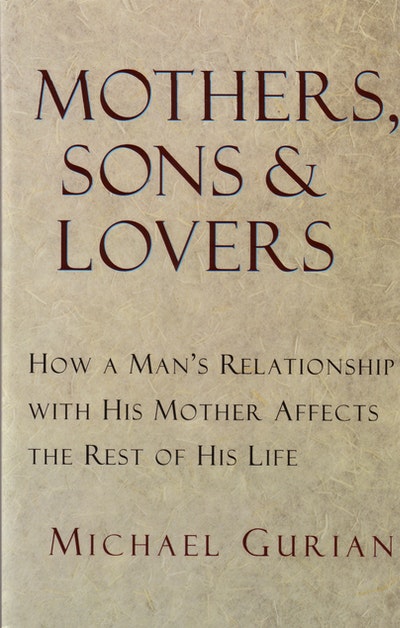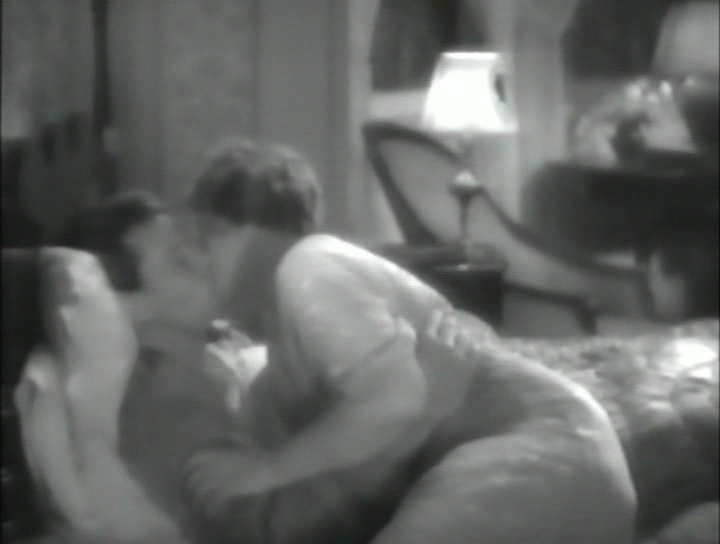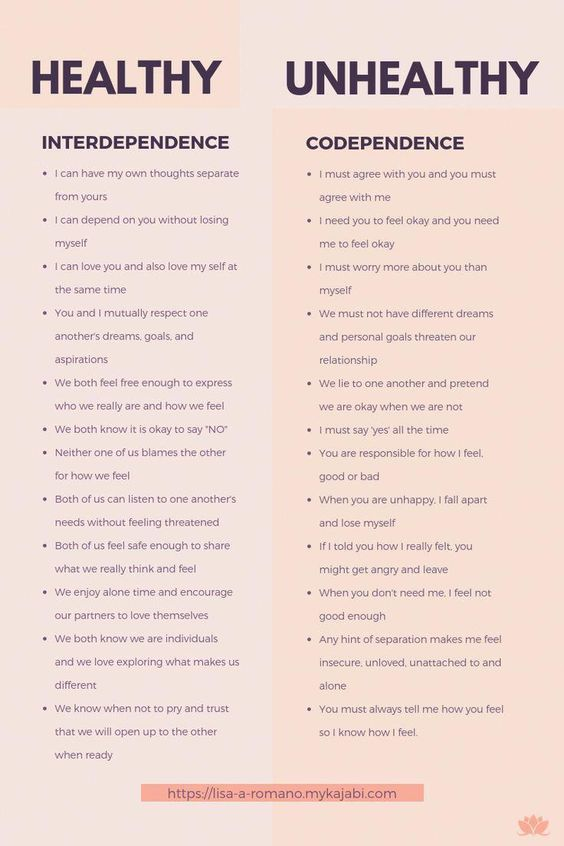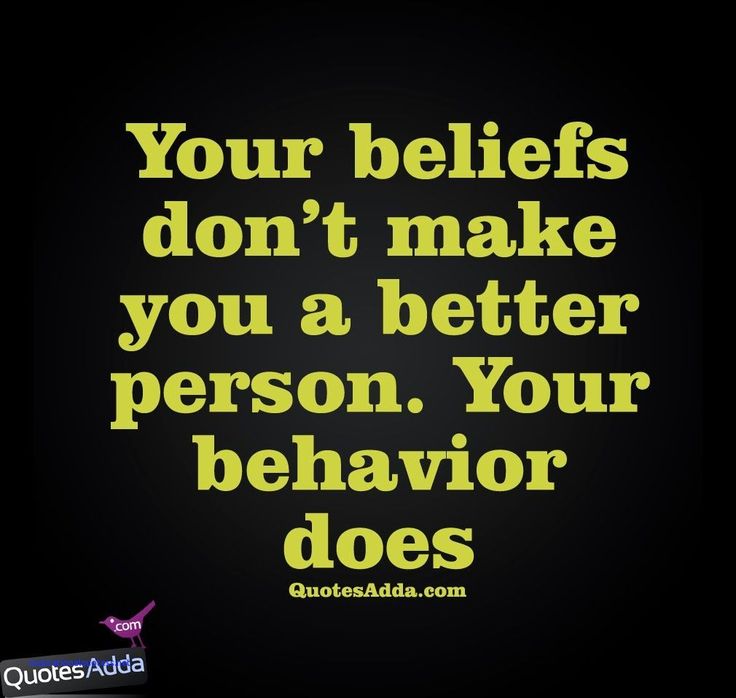Dysfunctional mother and son relationships
Signs, Causes, How To Fix It
Because the mom-son bond should be replete with love, care, and great affection.
A toxic mother and son relationship results from a manipulative, over-protective, abusive, or controlling mother. Such behavior can have long-lasting effects on his mental health and impact his adult life. However, these toxic relationships occur only on a minority scale, and most mothers leave no stone unturned to make the careers of their son(s).
According to a survey, 22% of mothers are “toxic” as against 19% of fathers (1). This could be quite shocking, but the statistics say so! So, how do you find out if a relationship is toxic? Can we rebuild a healthy relationship? In this article, we will discuss the causes and signs of a toxic relationship between a mother and a son and how to deal with it. Keep reading.
In This Article
Signs Of A Toxic Mother And Son Relationship
iStock
The signs of a dysfunctional mother-and-son relationship appear early on from the son’s childhood. Such a relationship affects the brain development and cognitive abilities of the child, resulting in difficulty bonding and learning, unhealthy coping mechanisms, and attachment issues. Here, we have listed the signs of an unhealthy mother and son relationship:
- Compulsive Controlling: From what toothbrush to use and which subjects to pick to whom to marry, the constant need to control the son is a glowering example of an unhealthy mother and son relationship.
- Manipulation: Manipulative behavior to get things done her way or fulfill her wishes is a classic example of an unhealthy mother-son relationship. Crying, making the son feel bad, and gaining sympathy are a few ways some mothers tend to manipulate.
- Abuse: Verbally and physically abusive behavior is commonly exhibited by insecure mothers. From giving the cold shoulder, calling names, comparing with others, using words to intentionally hurt, to punishing for the smallest of errors are signs of an unhealthy, toxic relationship.

- Threats: Another sign that a mother-son relationship is toxic is the mother constantly threatening to leave the home. This results in abandonment issues later in life.
- Narcissistic Behavior: Narcissists are tough to impress. They have impossibly high standards. They do not see their son(s) as an individual, but rather as an extension of themselves. As a result, the relationship takes an unhealthy turn when the expectations are not met by the son. This, in turn, affects the son’s future relationships with his friends, colleagues, and family members.
- Interference: Interfering with who to marry and further interference later in the marriage is another sign of a toxic mother-son relationship. It causes marital problems and sometimes burns the bridges between the son and his wife.
- Overprotectiveness: Mothers protect. But overprotective behavior that demands the son be constantly monitored, seeking information about him sneakily, and fighting his fights are a few signs
.
 In the long run, this can become annoying and ruin the relationship.
In the long run, this can become annoying and ruin the relationship.
- Substance Abuse: Abusing substances and being unable to take care of the son and/or finances strains the relationship. Neglect and immature decisions often make the son shoulder a lot of responsibilities. In the long run, this dependency on the mother without helping or contributing to the relationship crushes the mother-son bond.
- Unapologetic Nature: Harsh treatment or manipulation can cause a rift and reduce trust. However, mothers who do not take responsibility for their actions or apologize often push their sons away. Not apologizing deepens the crack in the mother-son relationship.
These are the various reasons a mother and son relationship becomes toxic. But to be human is to err. And, like issues in any other relationship, a bad mother and son relationship stems from certain psychological issues. We will discuss the same in the next section.
Causes Of Mother And Son Relationship Problems
Shutterstock
- Insecurity: Possessive, over-protective, manipulative, abusive, and narcissistic behavior originates from a mother’s insecurity. Fear of losing control of her life, feeling ignored, financial problems, a divorce or separation, losing a job, etc. can trigger insecurity.
- Depression: Mothers who are depressed have a negative effect on their children (2). Postpartum depression and/or clinical depression can make the mother neglect or abuse their son (3).
- Childhood Abuse: Women who have experienced childhood abuse can become harsh parents (2). In other words, they repeat the parenting style they experienced in their childhood, which contributes to their negative behavior.
Unhealthy attachment style in a mother and son relationship is psychologically complex. Making amends for toxic parenting and forgiving can slowly heal the relationship. In the following section, we advise mothers and sons on how to rebuild the relationship.
In the following section, we advise mothers and sons on how to rebuild the relationship.
How To Build A Healthy Mother And Son Relationship
Shutterstock
Any relationship is a two-way street. For it to work, both parties have to put in the effort. To rebuild the mother-son relationship, we have listed out to-dos and not-to-dos for both mothers and sons. Take a look.
10 Things Mothers Can Do To Improve The Mother-Son Relationship
Shutterstock
Listen And Empathize
A mother’s job is 24/7. It can get tiring. In the chaos, mothers often forget to listen and empathize. However, it’s not too late. Start listening to your son and understand his point of view. Does he need your attention or love? Are you being too imposing? Or, is he going through something that needs an intervention by an expert? His behavior (silent, ignorant, angry, etc.) and choice of words will reveal a lot. All you have to do is listen with your ears, eyes, and your motherly instinct.

Apologize
An apology can go a long way to mend a fractured relationship with your son. It is also the best way to extend a helping hand to someone who is not receptive due to past hurt. No one is perfect. We all make mistakes. Make amends starting with a heartfelt apology and not repeating the behaviors that made your son distant.
Seek Therapy
Childhood abuse or maltreatment can make mothers repeat it. Harsh parenting, on the other hand, not only impacts mental health but also sows the seeds of resentment. Mothers with depression or other mental illnesses can also hurt their sons by not being emotionally supportive. If you want to make things right, seek professional therapy. It will enable you to get to a better mental space to have a healthy relationship with your son.
Focus On Yourself
Most women dedicate themselves to their child or children – and this can be unhealthy for both the mother and son(s). Give your son the space they need.
 Focus on yourself. What is it that you want to do? Go to school? Learn a new skill? Travel or write a book? Maybe start a cooking channel on YouTube? Focusing on yourself will have a positive effect on you. You will be happier – and so will be your son, family, and friends.
Focus on yourself. What is it that you want to do? Go to school? Learn a new skill? Travel or write a book? Maybe start a cooking channel on YouTube? Focusing on yourself will have a positive effect on you. You will be happier – and so will be your son, family, and friends.Respect His Privacy
Everyone needs privacy. Whether it is your son’s personal or professional life, you must respect his privacy. Constantly nudging him to let you know what he is up to the whole day, his dating life, work-life, etc. can be intrusive and may not be welcome. It will only annoy him and push him away.
Do Not Compare
Constantly comparing your son with others is not a fair game. It affects his self-worth and can make him grow into an insecure individual always seeking validation from others. Stop comparing your son with others. Start looking for the hidden talents he has. Appreciate him and help him get better at those skills.
Be Authoritative, Not Authoritarian
Authoritative mothers are warm yet firm.
 They love and support their children but also keep a close eye on their progress in studies and protect them from unwanted associations. On the other hand, authoritarian mothers are unsupportive, cold, lack empathy, and abusive. They also are strict. Being authoritative will give your son a healthy environment to grow and learn in. Authoritarian parenting, on the other side, can lead to emotional issues and depression.
They love and support their children but also keep a close eye on their progress in studies and protect them from unwanted associations. On the other hand, authoritarian mothers are unsupportive, cold, lack empathy, and abusive. They also are strict. Being authoritative will give your son a healthy environment to grow and learn in. Authoritarian parenting, on the other side, can lead to emotional issues and depression.Do Not Interfere In His Marriage
Do you interfere in your son’s marriage with unsought advice, playing the referee, or complaining about your daughter-in-law? Or do you drop at their place any time and overstay at their place? Stop doing that immediately. Your son has his family now and he has to take care of them. Of course, you are a part of it. However, two people in the marriage should not be influenced by another person. Maintain a close bond with your daughter-in-law and your son but keep a distance so that they are not annoyed.
Do Not Pressurize
Pressurizing someone to do or not to do something never works.
 Your son is no exception. It only creates undercurrents of tension and resentment in the relationship. If you think your son needs guidance, discuss it with him over lunch. But leave it to him to make his decision.
Your son is no exception. It only creates undercurrents of tension and resentment in the relationship. If you think your son needs guidance, discuss it with him over lunch. But leave it to him to make his decision.Let Him Fight His Fights
You want to protect your son from every blow. But that’s not practical. Let your son fight his fights. It will also teach him the skills required to navigate through the adversities of life. Your role as a mother would be to support him and show him the right direction – and not walk his walk.
Read more: reasons to love your mom
These are the 10 things mothers can do to mend their relationship with their son(s). The following section lists out 7 things sons can do to improve their relationship with their mother.
7 Things Sons Can Do To Improve The Mother-Son Relationship
iStock
A majority of responsibility for a bad mother and son relationship is shouldered by mothers. However, a lot of toxicity can come from sons as well. It may be a reaction to the mother’s behavior. But the bigger picture here is to mend the cracks. Here’s what a son can do to have a healthy mother-son relationship:
It may be a reaction to the mother’s behavior. But the bigger picture here is to mend the cracks. Here’s what a son can do to have a healthy mother-son relationship:
Stay In Touch
Staying in touch with your mother through calls or visits will help your mother feel secure and happy. Call her at least once a week to let her know that you are doing well and ask her how she is. Visit her on holidays for at least one dinner or one day to make her feel included in your life.
Say Thank You
Mothers do a lot for us, but how often do we say thank you? Not acknowledging her efforts can make her feel invisible and unappreciated. The next time she does something nice, whether you ask her or not, do not take it for granted. Say thank you. It is going to make a lot of difference to her.
Forgive More Often
All mothers are not perfect. They are human beings, just like you. They have their issues to deal with. Some mothers are just better capable of dealing with the issues than others.
 Learn to forgive her for not being able to be the model mother. Holding a grudge against her will only cause you pain and keep you from moving on. Forgive her for mistreating you. Forgive her for not knowing better.
Learn to forgive her for not being able to be the model mother. Holding a grudge against her will only cause you pain and keep you from moving on. Forgive her for mistreating you. Forgive her for not knowing better.Don’t Be Financially Dependent
It is very important to be financially independent from an early age. It will give you the freedom to choose the subject you study, the college you go to, the career you choose, the house you buy, the car you drive, and the person you marry. Yes, you can go on a break if you need to. But do not sit around and let your parents take care of your basic needs. Get a part-time job to use your time and learn something.
Be Supportive
Just like you need your mother’s support, she also needs your support. After all, human beings are codependent. Whether you have a single mother or not, mothers always look for the approval of their children. So, if she wants to date, or learn something new, or seek therapy – encourage her and support her by helping her install a dating app, downloading the school brochure, or booking an appointment with the therapist.

Introduce Her To Your Friends
Friends often become family. Why not introduce your mother to a few such close friends. This will keep your mother from anxiously wondering about your safety and the company you keep.
Set Boundaries
Setting boundaries is a great way to keep a healthy relationship with your mother. Let her know that you are not OK with her calling too many times a day or worrying over you. It is OK to lend money to her when she needs it. However, if she has substance abuse issues, you must tighten the budget. Lastly, you have to make her understand that you are a different individual and not an extension of herself. Unrealistic expectations from you will only cause you to move away from her.
Key Takeaways
- A mother’s manipulative or abusive behavior can impact her son’s mental health.
- Insecurities, postpartum depression, and clinical depression are some common causes for this behavior.
- Respecting his privacy, not comparing him with others, and letting him make his own decisions may help rebuild a healthy mother-son relationship.

Your mental health comes first, no matter what. So if you can relate to most of the signs mentioned above, the chances are you are in a toxic mother-son relationship. So, you must work on the relationship together to adopt healthier behavior patterns. There could be many underlying reasons behind such an unhealthy dynamic between the two of you. You both need to talk it out and make each other aware of your feelings and that you are hurting inside. Finally, seek professional help if nothing else works.
Frequently Asked Questions
What is mother-son enmeshment?
An enmeshed mother-son relationship is where the son becomes a mama’s boy and cannot separate from his mother even after growing up. There are no boundaries in the relationship, and the son fails to have an identity and values of his own.
What is a normal mother-son relationship?
A normal mother-son relationship involves healthy boundaries, privacy, support, trust, love, and individual freedom. It does not involve manipulation and toxic behaviors.
It does not involve manipulation and toxic behaviors.
What is codependency between a mother and son?
It is an unhealthy relationship between a mother and her son where the mother exerts unnecessary control over her son’s life.
SourcesArticles on StyleCraze are backed by verified information from peer-reviewed and academic research papers, reputed organizations, research institutions, and medical associations to ensure accuracy and relevance. Read our editorial policy to learn more.
- The sins of the mothers
https://canadiancrc.com/newspaper_articles/Sydney_Morning_Herald_The_sins_of_the_mothers_12SEP08.aspx#:~:text=Just%20over%2022%20per%20cent - Maternal depression, maltreatment history, and child outcomes: The role of harsh parenting
https://pubmed.ncbi.nlm.nih.gov/30198728/ - A longitudinal study of maternal depression and child maltreatment in a national sample of families investigated by child protective services
https://pubmed. ncbi.nlm.nih.gov/19805711/
ncbi.nlm.nih.gov/19805711/
The following two tabs change content below.
- Author
As Head Of Content Operations, Harini sets the tone and editorial direction for StyleCraze to deliver engaging, interesting, and authentic... more
3 Types of Unhealthy Mother-Son Relationships and How They Affect You
Some types of unhealthy mother-son relationships can be so toxic that they can ruin your own and your children’s happiness. Below you will find some examples.
Mother-son relationships are complicated. While a son is growing and learning about the world and establishing his independence, he needs the nurturing and loving support of his mother. However, there are certain situations when the relationship between a mother and son is distorted and this can cause destruction. Unhealthy mother-son relationships can not only have detrimental effects on both the mother and son, but can also ruin any other relationships they have in their lives.
In the following article, we will look at some examples of unhealthy mother-son relationships. We will also discuss why they are bad and how they can have negative effects on you and your life.
Mummy’s Boy
When the mother makes all the decisions for her son, this can make it incredibly hard for him to escape from this pattern of dependence. It is not healthy for a son to rely on the help of his mother to make decisions.
If a son still considers his mother to be the main priority in his life, before even his partner, the relationship is very unhealthy. This can cause the son to feel regret and guilt if he doesn’t stay in contact with his mother but also resent her expectations. As resentment can become guilt and vice versa, a horrible cycle starts.
This is not to say it is wrong for a mother and son to be close. If you are involved in the kind of relationship, whether you are a mother or a son, it is a good and healthy thing. Closeness between the two of you can help him to communicate better in life and learn how to understand and express their emotions better.
Closeness between the two of you can help him to communicate better in life and learn how to understand and express their emotions better.
However, there is a line that should never be crossed. In the relationship, if you are too close, it can spell danger for you both.
Overprotective Mum
It seems that mums, in general, have a difficult time letting go of their sons, when it is time for them to mature and break out in the world on their own.
It is important for the son to have a close relationship with his mother while he is growing up, for a secure base for him to develop and explore who he wants to be. And mothers should be protective of their children.
However, it is when they become too overprotective that the relationship becomes unhealthy not just for the son, but the mother also.
Spouse Substitute
There are unhealthy mother-son relationships where the mother will replace the relationship she should have with her partner for an emotional one of the same kind with her son.
It may be that the husband/dad is not living with the family anymore or has died. It could also be that he is not giving the level of emotional support that the woman needs or is abusing her. In some ways, it may feel natural for her to turn to her son, as the next closest thing to a male partner.
However, just because the husband/dad is not shaping up to the man he should be or is not there to take on the responsibility of his role, it doesn’t mean the son should be seen as a substitute.
There are also relationships known as ‘enmeshed’ parent-child relationships. In these relationships, the children and parent rely on each other to fulfill their emotional needs – to make them feel healthy, whole, or just good.
Although that sounds fine, they do it to the extreme, and the psychological health of both parties is put at risk. All sense of individuality is lost.
When Unhealthy Becomes Immoral and Illegal
Sometimes though, the above relationships can become more than just unhealthy, but illegal and immoral. Sexual, incestuous relationships form. Although this is generally rare, it is possible.
Sexual, incestuous relationships form. Although this is generally rare, it is possible.
Creates Challenges for Marriages
When a mother and son have an unhealthy relationship, it causes him to struggle with setting boundaries and detach from his mother.
This can be a real problem when he is involved in a romantic relationship such as a marriage. His wife may feel as if he always has to compete with the mother, so it can cause a rift between her and her husband.
Admitting There’s a Problem
All is not lost though. The problems caused by unhealthy mother-son relationships can be healed. The first step is admitting there is a problem and dealing with these problems by speaking to a therapist.
There are other ways to get the same sort of help if they don’t feel comfortable attending therapy – by joining an online forum or something similar. Issues may still arise because a relationship has two halves and if one is not prepared to work at a solution, nothing will be able to change.
Set Boundaries
It’s the very fact that boundaries that should have been in place were violated. When both parties are aware of this, it can be addressed and dealt with by setting healthy boundaries. This may involve taking baby steps at first.
References:
- https://www.huffingtonpost.com
- https://www.psychologytoday.com
- Author
- Recent Posts
Ruth Newton, M.A., B.A.
Contributing writer at Learning Mind
Ruth Newton has a diverse background in writing and film production. With a degree in English Literature from the Goldsmiths, University of London, and a master of arts degree in Documentary Film from the University of Sussex, she has written plays, magazine articles, and TV scripts.
Latest posts by Ruth Newton, M.A., B.A. (see all)
Copyright © 2012-2022 Learning Mind. All rights reserved. For permission to reprint, contact us.
The son grew up and does not communicate with his mother: why is this happening
96 112
To parents
Last year I had a vacation in Estonia. I got to Pskov by train, then by taxi, combining the road to the sanatorium with a sightseeing tour. While driving, the driver told a story that I want to share.
I got to Pskov by train, then by taxi, combining the road to the sanatorium with a sightseeing tour. While driving, the driver told a story that I want to share.
After the wedding, the young wife asked him not to communicate with her mother, motivating her demand by the fact that her husband now has his own family. He readily agreed. His wife and mother-in-law replaced his mother. A son was born in the family, who also stopped communicating with his parents immediately after his marriage, ignoring his father's words about filial duty.
My companion now sincerely does not understand what he spent a quarter of a century on. As if the best years have disappeared into nowhere. He broke up with his wife, who still believed that a husband should not take care of his mother. In dismay, he rushed to restore relations with his mother, with whom he had not communicated for years. He married another woman, and she showed him with what respect and care you can treat your parents.
Filial duty
The told story illustrates two proverbs in the best possible way: “the son to the crown, and the daughter to the end”, “the paradise of sons lies under the feet of mothers”. The first for the most part reflects the Western mentality, the second - the Eastern. And in folk wisdom, as a rule, lies the centuries-old experience of generations.
The first for the most part reflects the Western mentality, the second - the Eastern. And in folk wisdom, as a rule, lies the centuries-old experience of generations.
Now in the West it is customary to talk about individualization, separation from parents. But every phenomenon has a downside. By reducing communication with their parents to a minimum, grown-up children push them to bitter reflections that life has been wasted. After all, they do not receive either psychological or material returns from many years of daily, sometimes sacrificial, labor.
This is especially acute in the post-Soviet space. We, fifty-year-olds, are the last generation that "obeyed" their parents, and the first that children do not "obey". Despite the peculiarities of the socialist system, we put concern for them at the forefront. Perhaps because life did not provide us with such opportunities for self-realization that our sons and daughters had and still have.
A side effect of globalization, psychological emancipation, is the rupture of the connection between times and generations, the collapse of the family institution based on traditional values. Our words about filial duty often do not resonate in the hearts of "adult boys", we are called toxic with our supposedly unfounded claims and rejected.
Our words about filial duty often do not resonate in the hearts of "adult boys", we are called toxic with our supposedly unfounded claims and rejected.
The history of the relationship between sons and mothers is as old as the world. Children are not always guided by the Gospel and the Koran, they do not always believe that honoring parents is one of the highest virtues pleasing to God. The proverb “son to the crown, and daughter to the end” is not about all people with a Western mentality. Just like the proverb “the paradise of sons lies under the feet of mothers” is not about everyone who was brought up in the Eastern tradition, although for the most part it reflects the real state of things.
In both environments, there are sons who treat their mothers faithfully and respectfully even after marriage and, on the contrary, who abandoned them.
Double game
From the point of view of analytical psychology, ignoring, devaluing the mother by the son after marriage reflects the dynamics of the unconscious transference. The son shifts the function of the mother to the wife. He does not want to repay his mother's debts, ignores her requests and claims, calls her toxic. It is as if all the good that was done for him is erased with an eraser, and only maternal mistakes are remembered. Of course, this speaks of the infantile position of a man who changes one “breast” for another.
The son shifts the function of the mother to the wife. He does not want to repay his mother's debts, ignores her requests and claims, calls her toxic. It is as if all the good that was done for him is erased with an eraser, and only maternal mistakes are remembered. Of course, this speaks of the infantile position of a man who changes one “breast” for another.
Genuine separation, growing up of a boy is not about making claims from the height of adult impunity, ignoring an aged, unnecessary mother. Real masculinity lies in accepting the shadow aspect of motherhood and returning to the source of unconditional love. But when the son's ego is taken over by the mother's unconscious devaluation, it is difficult to appeal to higher values. So it turns out that the mother, in an attempt to reach out to her son, beats like a fly against glass.
However, the mother also needs to give her son time and free up space for a qualitatively new relationship. Making claims, endlessly discussing mistakes, we only increase the distance. Often the mass of mutual mistakes becomes critical and outweighs feelings of love and affection. Mother and son miss each other, but when they meet, they again slide into reproaches. Instead of getting to know each other again, they confuse and complicate everything even more.
Often the mass of mutual mistakes becomes critical and outweighs feelings of love and affection. Mother and son miss each other, but when they meet, they again slide into reproaches. Instead of getting to know each other again, they confuse and complicate everything even more.
Paradoxically, children from dysfunctional families often grow up to be more grateful, because from an early age they are in a co-dependent relationship with their mothers. They get used to playing the role of saviors for their parents, do not cheat on her in adulthood ... But this has nothing to do with a mature, conscious feeling of affection and love.
Our time, despite all the difficulties, has a number of advantages. Mothers now have at least a decade of active life to spend on self-realization that was previously denied them. Maybe we should separate ourselves from children, take care of ourselves, and not make it a duty for children?
About the author
Guzel Khusnullina (Makhortova) — psychotherapist, Ph. D. history". Cogito, 2004, 2011). Her website.
D. history". Cogito, 2004, 2011). Her website.
Photo Source: Getty Images
New on the site
How to stop worrying about “What will people say?”: 9 steps
Sensory trauma: how childhood sexual shocks affect us now0003
5 negative consequences of the new draft law on psychological assistance
Psychologist explained how to remain happy in a crisis no matter what
“My father died, and I don’t feel anything”
Why loved ones become strangers and can this be avoided
What prevents us from healing childhood traumas: 5 obstacles
“Husband cheated while drunk and told me about it in detail”
Mother’s attitude towards children in single-parent dysfunctional families0001
THE MOTHER'S RELATIONSHIP TO CHILDREN IN INCOMPLETE UNSUCCESSFUL FAMILIES
Ekaterina Borisovna Agafonova
Ph.D. psychol. Sci., Associate Professor, Vladivostok State University
Economics and Service, Vladivostok E-mail: kaggy@mail. ru Solonenko Kristina Leonidovna
ru Solonenko Kristina Leonidovna
Senior Inspector of the Territorial Department of Guardianship and Guardianship for the Administrative Territorial Administration of the Leninsky District
Vladivostok City District, Vladivostok Vladivostok
E-mail: [email protected]
MOTHER'S ATTITUDE TO CHILDREN IN THE DYSFUNCTIONAL
SINGLE-PARENT FAMILIES
Ekaterina Agafonova
candidate of psychological sciences, associate professor Vladivostok State University
of Economics and Service, Vladivostok Kristina Solonenko
senior Inspector of the territorial department of custody and guardianship of the administrative territorial administration of Leninsky district of Vladivostok city,
Vladivostok
ABSTRACT
Purpose: to study the mother's attitude to children in single-parent dysfunctional families using a parental attitude test-questionnaire (A.Ya. Varga, VV Stolin). Results: women from incomplete dysfunctional families do not show negative emotional attitude towards children (rejection). However, their level of acceptance of the child is lower, less willingness to cooperate, weak control. Their assessment of the child's capabilities is lower, and the psychological distance is greater compared to women from the control group, which confirms the need for psychological support for single-parent dysfunctional families.
However, their level of acceptance of the child is lower, less willingness to cooperate, weak control. Their assessment of the child's capabilities is lower, and the psychological distance is greater compared to women from the control group, which confirms the need for psychological support for single-parent dysfunctional families.
ABSTRACT
Objective: to research the mother's attitude to children in the dysfunctional single-parent families by means of the parent's attitude questionnaire (A. Varga, V. Stolin). Results: women from dysfunctional single-parent families do not have
negative emotional attitude to children (rejection). But they have a low level of acceptance of the child, less willingness to cooperate, poor control. They underestimate the child's capabilities and their psychological distances are larger. Conclusion: the findings confirm the need of psychological support for the dysfunctional single-parent families.
Key words: dysfunctional family; attitude towards children; rejection; Adoption; cooperation; control; psychological distance; symbiosis.
Keywords: dysfunctional family; attitude to children; rejection; acceptance; cooperation; control; psychological distance; the symbiosis.
A high percentage of dysfunctional families remains a characteristic feature of modern Russian society. Economic instability, insufficiency of social guarantees, lack of an adequate system of psychological support are factors preventing the family institution from overcoming the crisis. The current situation affects the reproductive and educational functions of the family [2]. Today, incomplete maternal families, on the one hand, are considered as one of the types of families that have equal educational opportunities with others [1]; on the other hand, this category of families remains a vulnerable group in terms of the influence of external and internal factors of family distress [4]. Violations of attitude towards children in families with open (obvious) forms of family trouble in extreme forms of manifestation cast doubt on the possibility of the child's physical survival and entail severe psychological disorders [3].
The presented study was carried out on the basis of the territorial department of guardianship and guardianship of the administrative territorial administration of the Leninsky district of the Vladivostok city district. The experimental sample included 30 women aged 25 to 40 years,
having 2-3 children aged 6 to 18 years and being under control in the department of guardianship and guardianship, as not properly fulfilling parental responsibilities. These are not working women, leading an immoral, illegal way of life, abusing alcohol; their families are characterized by the manifestation of insufficient care for children, improper care and nutrition, physical and psychological abuse, ignoring the spiritual world and experiences of the child, and inadequate housing and living conditions.
The control group included women from single-parent families without open forms of family trouble. These are families that have a fairly favorable psychological atmosphere and the necessary conditions for the development, upbringing and education of children. The women included in this group have a job and a stable income, children attend pre-school and school institutions. The samples were equalized by the age of women, the number and age of children.
The women included in this group have a job and a stable income, children attend pre-school and school institutions. The samples were equalized by the age of women, the number and age of children.
We assumed that mothers in single-parent dysfunctional families have a predominantly emotionally negative attitude towards children (rejection), weak control, less inclination to cooperate and greater emotional distance from children, compared with mothers from single-parent families that do not have open forms family trouble.
Table 1 presents the results obtained using the test-questionnaire of parental attitude (A.Ya. Varga, VV Stolin) for the control and experimental groups (average scores). Significant differences were confirmed for all scales of the questionnaire by applying the Rosenbaum Q test. Table 10003
failures
Single parent dysfunctional families 13.3 3.0 3.0 2.4 5.3
Single parent families 28.0 7.0 6.4 4.5 2.5
As can be seen from the table, the maximum differences were found on the scale "Acceptance/rejection of the child". According to the data obtained, mothers from single-parent families who do not have open forms of family trouble (control group) demonstrate a pronounced emotionally positive attitude towards the child (acceptance). However, despite the fact that in the experimental group the degree of acceptance is significantly lower, the majority of mothers in this group received average scores on this scale (interval 9-23 points), i.e. our assumption that women in this group demonstrate a predominantly emotionally negative attitude towards children (rejection) is not confirmed. Significantly lower are the scores scored by mothers from the experimental sample and on the “Cooperation” scale, which makes it possible to reveal the desire of adults to cooperate with the child, their interest in and participation in his affairs. Consequently, in incomplete dysfunctional families, women share the interests of the child to a lesser extent; less encourage his initiative and independence.
According to the data obtained, mothers from single-parent families who do not have open forms of family trouble (control group) demonstrate a pronounced emotionally positive attitude towards the child (acceptance). However, despite the fact that in the experimental group the degree of acceptance is significantly lower, the majority of mothers in this group received average scores on this scale (interval 9-23 points), i.e. our assumption that women in this group demonstrate a predominantly emotionally negative attitude towards children (rejection) is not confirmed. Significantly lower are the scores scored by mothers from the experimental sample and on the “Cooperation” scale, which makes it possible to reveal the desire of adults to cooperate with the child, their interest in and participation in his affairs. Consequently, in incomplete dysfunctional families, women share the interests of the child to a lesser extent; less encourage his initiative and independence.
The results on the "Symbiosis" scale led to the conclusion that the psychological distance in relations with the child in the experimental group is greater than in the control group. However, the results of women from the control group indicate a tendency to form symbiotic relationships with children, while the points scored by mothers from dysfunctional families fell mainly in the middle range (3-5 points), which formally indicates the optimal
However, the results of women from the control group indicate a tendency to form symbiotic relationships with children, while the points scored by mothers from dysfunctional families fell mainly in the middle range (3-5 points), which formally indicates the optimal
psychological distance. It is hardly possible to regard this as an "advantage" of education in dysfunctional families. Rather, we can say that the attitude towards children in single-parent families, whose lifestyle does not cause concern on the part of society, can also have characteristic features that need to be corrected.
Low scores on the “Control” scale indicate that women from the experimental group tend to pay insufficient attention to what and how their child lives (hypo-custodial upbringing). The results of mothers from single parent families were mostly within the optimal range (3-5 points) of sufficient, but not excessive control. The difference in scores on the scale “Attitude towards the failures of the child” indicates that mothers from single-parent dysfunctional families consider the failures of their child more natural, women from the control sample are less inclined to associate the failures of the child with the level of his abilities and personality traits. However, neither group demonstrated a high degree of confidence in the child's ability to achieve (7-8 points).
However, neither group demonstrated a high degree of confidence in the child's ability to achieve (7-8 points).
Thus, the hypothesis was partially confirmed. Namely: mothers from single-parent dysfunctional families, according to our data, are less inclined to cooperate with children; control them less and establish a greater psychological distance, compared with mothers from single-parent families who do not have open forms of family trouble. The part of the hypothesis concerning the fact that women from the experimental group have a predominantly emotionally negative attitude towards children (rejection) was not confirmed.
The obtained results undoubtedly confirm the problematic nature of the attitude of mothers towards children in single parent dysfunctional families. At the same time, the fact that these women demonstrate a certain degree of acceptance (do not reject emotionally) of their children can be viewed as a potential opportunity and resource for psycho-correctional and psychotherapeutic work aimed at forming adequate parent-child relationships.












